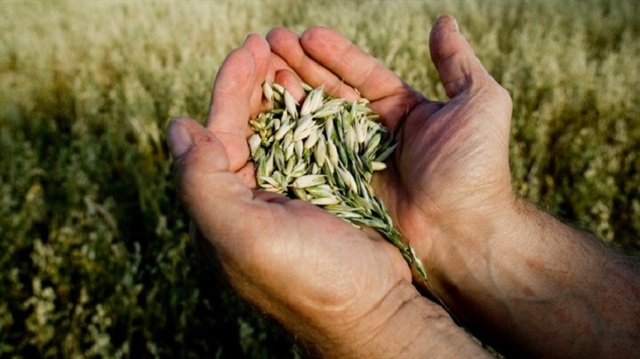
While older GMO technology typically adds new DNA to a crop or animal, gene editing can cause a mutation by changing a few pieces of DNA code. It works with great speed and precision, like the find-and-replace function on a word processor.
"Anything you can do by standard mutagenesis you can do 10 or maybe 50 times quicker," said Johnathan Napier, who is leading a trial at Rothamsted Research which has involved the sowing of the first gene-edited crops in Britain.
He said the first wave of gene-edited crops may involve removing harmful elements from food, such as developing peanuts without peanut allergens or castor bean oil without ricin toxin.
But critics say the technology is not yet proven safe - an argument that may have gained weight this week after research suggested gene editing can cause risky collateral DNA damage.
So far, the signs are that the court may lean towards the biotech industry's view. ECJ advocate general Michal Bobek advised in January that organisms could be exempt from GMO rules if they did not have added foreign DNA.
The advocate general's view is not binding but is usually followed by ECJ judges.
John Brennan, secretary general of the biotech industry group EuropaBio, believes gene-edited crops will bring consumer and environmental benefits, as well as keeping Europe at the forefront of a technology important for jobs and growth.
"A clearer regulatory status is essential for communicating and understanding the opportunities that these tools and products present," he said.
The first wave of gene-edited crops involve removing potentially harmful elements, such as the allergens in peanuts or ricin toxin in castor bean oil, said Napier at Rothmsted.
Environmental groups see things very differently.
"We're talking about genetic engineering and that should be regulated under GMO law," said Franziska Achterberg of Greenpeace.
Friends of the Earth, which helped bring the original case in France, contends that failure to regulate gene editing could cause permanent damage to Europe's food sector.
Some retail groups that have been working to produce and market non-GMO food have also expressed concern.
Currently, strict rules mean only one GM crop, a variety of maize, is grown in Europe and while the EU allows the import of others they are exclusively used as animal feed.














